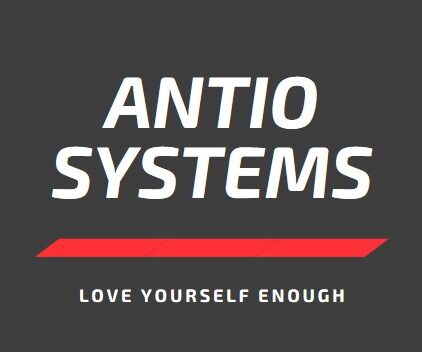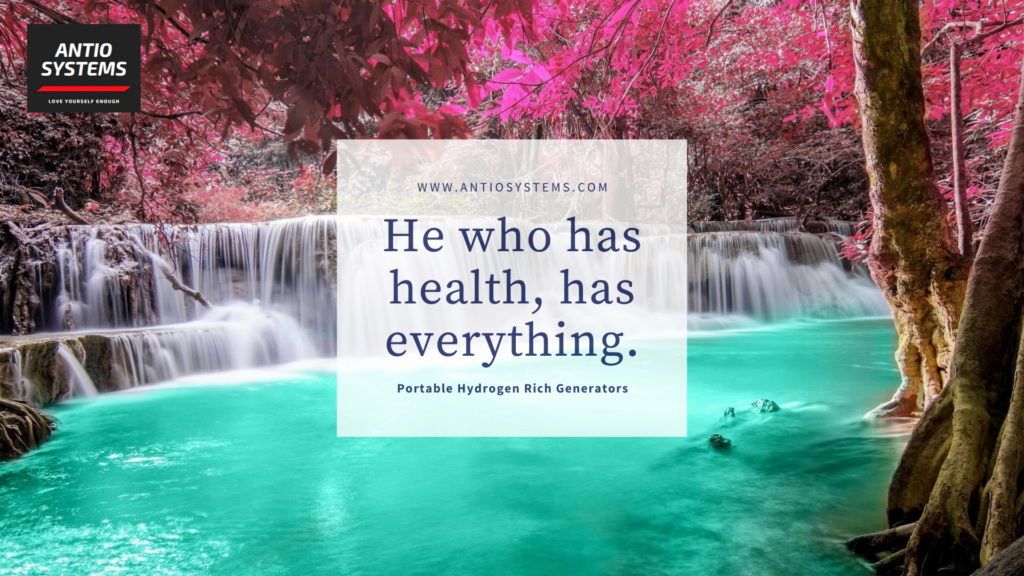
A Simple Molecule With Tremendous Health Benefits
What Did the Doctor Say?

Dr. Juergen Winkler M.D., ABIHM is a Board Certified Doctor in Holistic and Integrative medicine. He is presently practicing at Quantum Functional Medicine in Carlsbad, CA which he founded in July 2012. He is a Board Member of the International Organization of Integrative Cancer Physicians (IOICP).

On a regular basis I see patients with a variety of health problems starting earlier in life. Just listening to the radio reminds me of the increased rate and risk of autism. When I look around our environment I see more smog, pollution, more health robbing chemicals used to make the products we use on a daily basis.
Even though the information and misinformation may be overwhelming, we can bring it back to the basics. If you could do one thing everyday to help keep or increase your vitality, rejuvenate your body, recover from workouts quicker, and stay healthy, would you take advantage of it?
Molecular Hydrogen is a remarkable molecule capable of making a dramatic difference in your health. It’s benefits pertain to everyone because it acts on your antioxidant defence system, a crucial part of healthy living. This Page will give you an overview of how good Molecular Hydrogen is, and hopefully it will motivate you to integrate it into your life.
What is Molecular Hydrogen ?

Molecular Hydrogen (H2) is a molecule composed of two hydrogen atoms bonded to each other. This molecule does not commonly occur in nature. Most of the time, hydrogen atoms bond to other atoms. For example, two hydrogen atoms are bonded to a single oxygen atom to form a water molecule.

Water (H2O) is a very important part of our daily lives, and the two hydrogen atoms in water gives water many of its unique properties via hydrogen bonding. Hydrogen atoms are critical components in water as well as many other organic molecules such as carbohydrates, proteins, lipids, and DNA.

Glucose (Carbohydrate) Hydrogen is White

Actin (Protein) Hydrogen is Red
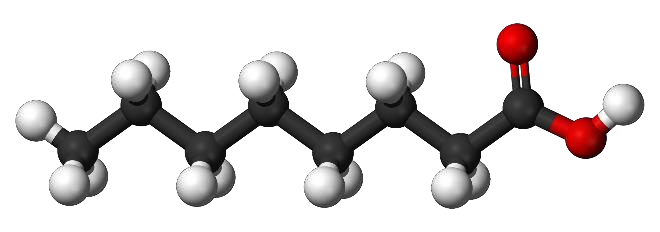
Caprylic Acid (Lipid) Hydrogen is White

HYDROGEN, THE SMALLEST ELEMENT IN EXISTENCE
Hydrogen (H) appears in the top left corner of the periodic table, and is denoted as 1. It contains one proton and one electron with no neutrons. This means that the element hydrogen is the smallest, simplest, and most fundamental element. This makes Molecular Hydrogen (H2) the simplest molecule in existence since it’s a bond of two of the smallest atom. For simplicity’s sake, we will refer to Molecular Hydrogen as H2 from now on.

Burning hydrogen gas and oxygen gas produces efficient energy and water vapor as a byproduct.
Because H2 is so small, it exists as a gas in normal temperatures and pressures. You may have heard of H2 being referred to as hydrogen gas. Hydrogen gas has been the main focus of clean energy because burning it as a fuel generates water vapor as a byproduct instead of the toxic pollution that is produced by burning gasoline. It’s also extremely efficient as a fuel, and will be the main fuel source for cars in the near future.
HYDROGEN IS EVERYWHERE

Did you know hydrogen composes 75% of the visible universe? It’s the most common element, but Molecular Hydrogen (H2) composes only 1 ppm of Earth’s atmosphere.
When you think of hydrogen, you may think of positive hydrogen ions (H+) which are also called protons. pH is a measurement of the amount of H+ ions that exist in a liquid. The lower the pH, the more protons there are in the liquid and greater the acidity. This is different from the hydrogen we are talking about, which is Molecular Hydrogen (H2).
Is Molecular Hydrogen (H2) produced anywhere naturally?
In nature, H2 is produced by bacteria and algae via anaerobic metabolism. This may account for some of the H2 that’s detected in our atmosphere even though it’s not at a high enough concentration to make a difference in our lives.

For humans, the bacteria in your intestines generate H2 as they ferment unabsorbed carbohydrates. The H2 produced in your intestines is either exhaled via your breath or flatulence. Usually the amount of Molecular Hydrogen produced by the bacteria in your gut is not enough to provide noticeable therapeutic benefits.
Interesting Fact
A study of Japanese Centenarians (Person who is more than 100 years old) showed that their breath molecular hydrogen levels were up to 4x higher than an average healthy person!

Molecular Hydrogen (H2) for Health
Although H2 is a seemingly simple molecule, it provides a variety health benefits that we are still discovering today. The benefits that H2 can provide have been confirmed time and again over the last 10 years even though it has been overlooked for a long time. Now over 300 research studies show the benefits of H2 in a variety of disease models.
Why haven’t I heard that H2 is good for your health before?
The reason why you probably haven’t heard that H2 is beneficial for your health is because “it’s too simple”. H2 can’t be patented, which means it’s not going to be profitable as a pharmaceutical drug. Therefore, not many resources have been allocated to promote H2 in mainstream media.
Also, H2 seems to be “good for everything” at first glance. Since H2 works on the antioxidant defense system inside your cells, its effects vary from person to person. That’s because free radicals affect each of us in different ways. This may be a difficult concept to grasp, and some people end up not believing because it sounds “too good to be true”.
Despite these reasons, progressively more academics and researchers have documented the undeniable evidence for the benefits of H2 on human health. The research on molecular hydrogen has grown exponentially over the past 10 years.
As discussed before, the most significant way that H2 promotes optimal health is to enhance your antioxidant defence system and neutralize harmful free radicals directly. This page of Antio Systems’ is a crash course on the importance of having a strong antioxidant defence system and the ways that H2 can support your cells and your overall health.
THERE’S A WAR WAGING WITHIN YOUR CELLS

Your cells are constantly under attack by free radicals. Free radicals are byproducts of energy production from your mitochondria, the engines of your cells. A free radical has an unpaired electron and wants to satisfy it by taking an electron from a molecule nearby. Free radicals are short lived, unstable, and react with other molecules to achieve stability. The scientific term for free radical is Reactive Oxygen Species (ROS).
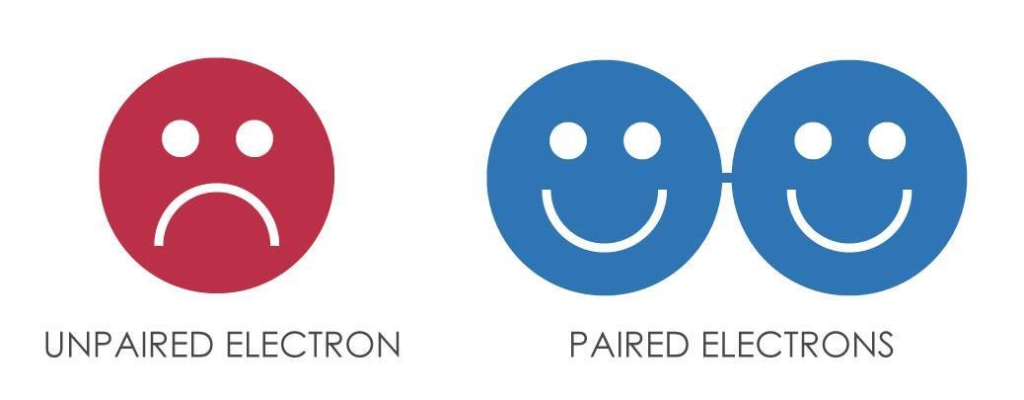
Imagine a car engine burning gasoline for fuel. What’s the byproduct? Smog, or more specifically, carbon monoxide. Carbon Monoxide is so toxic that inhaling it can be fatal. Free radicals appear in a similar fashion as a waste product of energy production in your cells. Free radicals are like the carbon monoxide of your cells.
Normally, your antioxidant defense system can take care of free radicals before they inflict any harm. But as you age and toxins overload your system, your antioxidant system becomes sluggish and free radicals begin to wreak havoc inside your cells.
Long-term free radical damage, also called oxidative stress, has been linked to aging and most chronic diseases such as cancer, diabetes, neurodegenerative diseases, cardiovascular disease and more. That’s why antioxidants have been a primary focus and keyword in the nutritional supplement industry since the beginning.
YOUR ANTIOXIDANT DEFENSE SYSTEM
FREE RADICALS ARE CONSTANTLY PRODUCED IN YOUR MITOCHONDRIA
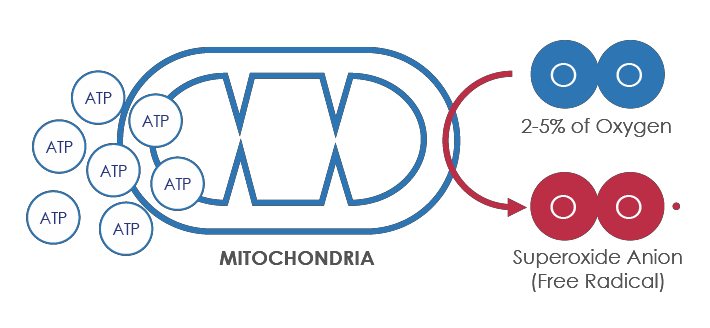
Mitochondria are responsible for producing energy in the form of ATP (currency of energy in your cells), but they also produce free radicals as a toxic byproduct. Oxygen is critical in driving energy production. Unfortunately, 2-5% of the oxygen utilized in energy production convert into Free Radicals called Super-oxide Anions.
ANTIOXIDANTS PROTECT YOUR CELLS FROM FREE RADICAL DAMAGE
STEP 1

Within your cells there are antioxidant enzymes such as Super-oxide Dismutase that neutralizes a Super-oxide Anion and converts it into Hydrogen Peroxide. Hydrogen Peroxide is a weak free radical that is useful in your cells. Your immune system uses Hydrogen Peroxide to kill bacteria and to signal to the rest of your immune system if there is an injury to tissue. Typically when you get a cut, Hydrogen Peroxide is generated which then signals your white blood cells to mobilize to the cut.
ANTIOXIDANTS PROTECT YOUR CELLS FROM FREE RADICAL DAMAGE
STEP 2

Another antioxidant enzyme is Glutathione Peroxidase (GPX). Two GPXs convert one Hydrogen Peroxide into two molecules of water. During this reaction the two GPXs bond together to form Glutathione Disulfide (GDS). GDS needs be recycled by another enzyme to convert back into 2 GPXs ready to take on more Hydrogen Peroxide molecules. This means that GPX is not always readily available and there’s a limit to its function as an antioxidant.
This two-step process of eliminating free radicals inside your cells is crucial for the health of your cells. If there’s not enough Superoxide Dismutase and Glutathione Peroxidase available, Superoxide Anion and Hydrogen Peroxide can build-up in your cells. These free radicals themselves may not be that bad, but they react with each other to form a deadly free radical, the Hydroxyl Radical.
Depending on your diet, lifestyle, and environment, your cells can end up creating more free radicals than your antioxidant enzymes can handle. And it doesn’t help that as you age your antioxidant enzymes dwindle naturally. When excess free radicals are formed inside your cells, it results in serious consequences for your health.
EXCESS FREE RADICALS ARE DANGEROUS TO YOUR CELLS
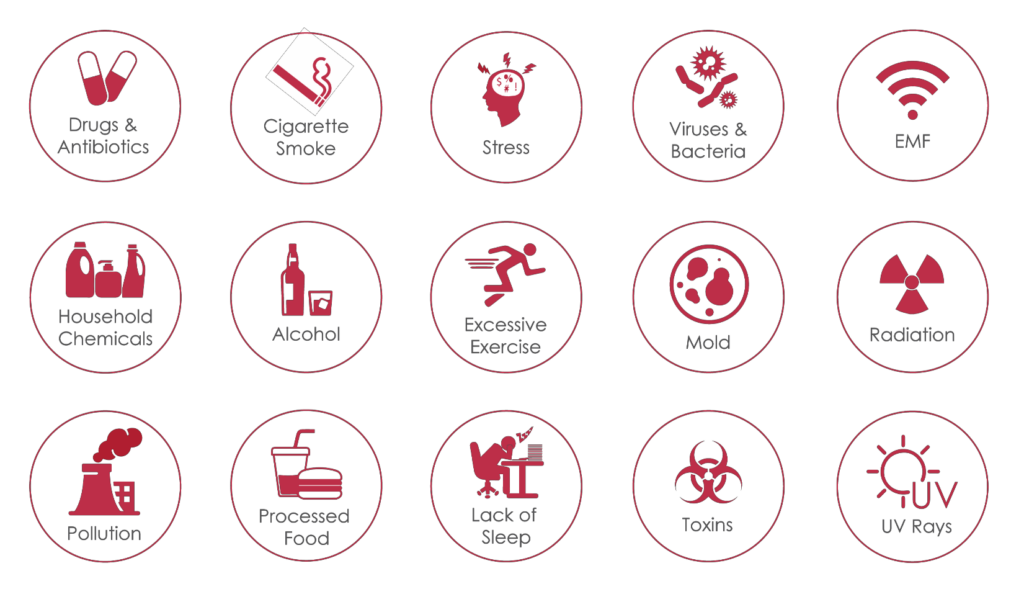
No matter how healthy you are, free radicals are generated inside your cells EVERY SECOND. Worse still, the circles above show the most common contributors to extra free radicals inside your cells. Check how many of them you are exposed to daily.
THE MOST DANGEROUS FREE RADICAL
HYDROXYL RADICAL
When free radicals aren’t eliminated quickly, they convert into more dangerous free radicals. For example, Hydrogen Peroxide readily converts into the most dangerous Hydroxyl Radicals in the presence of Iron (in blood cells) or other transition metals.
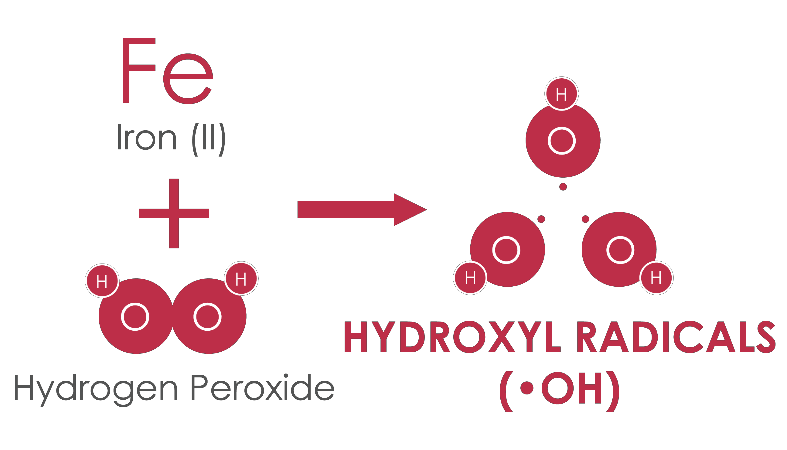
Hydroxyl Radicals can also be produced in your cells when you are exposed to Radiation, UV rays, or Electromagnetic frequencies (EMF). These are highly energetic waves that penetrate into your cells and break up water. Sometimes water splits into a Hydroxyl Radical as shown in the figure below.
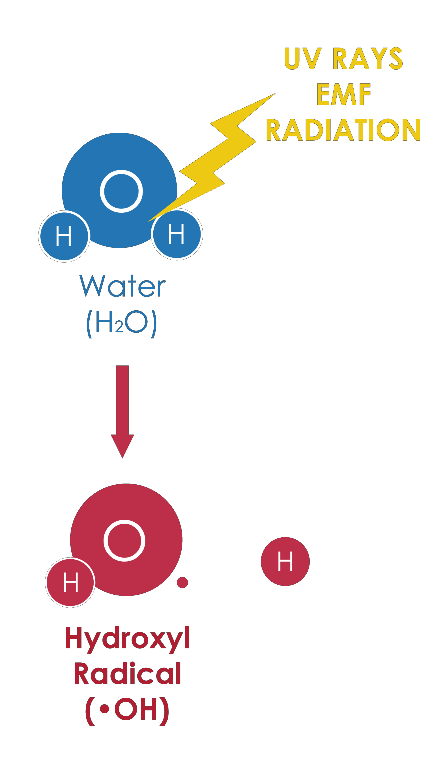
Hydroxyl Radicals are highly reactive free radicals that will steal an electron from any other molecule, thereby damaging them. Notice how similar they are in structure to water. All they need is a hydrogen atom an electron to become water. Their desire to stabilize into water is so powerful that they can easily rip off hydrogen atoms and electrons from any molecule around them to satisfy themselves. Usually the victims are DNA, proteins, and lipids that make up your cells.

FREE RADICAL DAMAGE IN YOUR CELLS IS CALLED OXIDATIVE STRESS
Oxidative Stress occurs when there is a disturbance in the balance of free radicals and antioxidants leading to the formation of Hydroxyl Radicals that cause irreversible damage to cellular molecules. Oxidative Stress is known as the cause of many different health challenges and it affects each individual differently depending on genetics.
If you feel that you’re not as healthy as you should be, the root cause is most likely Oxidative Stress. You need to boost your antioxidant defence system so that it can neutralize excess free radicals efficiently. You can enhance the antioxidants inside your cells by supplementing your diet with antioxidant-rich foods, following a healthier lifestyle, and utilizing H2.
Molecular Hydrogen The Perfect Antioxidant
Many supplement companies claim that their antioxidant formula is the best. Although some of these formulas are effective, no other antioxidants have the ability to act in the multiple ways that Molecular Hydrogen(H2) does to protect you from oxidative stress. H2 is the Perfect Antioxidant.
Why is Molecular Hydrogen (H2) the Perfect Antioxidant?
1. Size
H2 is the smallest antioxidant in existence. Other antioxidants such as Vitamin C or Vitamin E are very large molecules compared to H2 and need to go through your digestive tract, absorbed in your intestines, travel through your blood, and enter into your cells before they can eliminate free radicals.
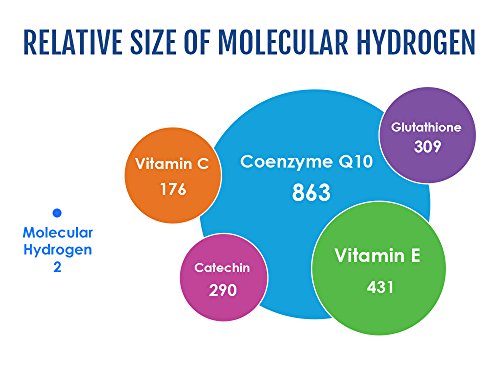
H2 is so small that it can penetrate through your stomach lining to begin acting inside your cells immediately. H2 is also in a gaseous state, so it basically floats through your cells (rapid diffusion) and performs its function as an antioxidant undeterred by the normal mechanisms that prevent other antioxidants from moving freely through the body.
H2 can also cross the Blood-Brain-Barrier easily due to it’s small size whereas other antioxidants have a difficult time getting through or can’t get through at all. The brain is highly susceptible to oxidative stress because it consumes 20% of the oxygen you breathe despite being only being 2% of your body’s weight. So it’s very important to protect your brain with antioxidants since it’s especially vulnerable.
2. Selectivity
H2 is selective and targets only hydroxyl radicals. This is a key benefit because H2 only eliminates the harmful free radicals but does not directly affect useful free radicals such as hydrogen peroxide or nitric oxide. Like we mentioned before, hydrogen peroxide is used by the immune cells to kill bacteria, and nitric oxide is a signalling molecule that helps open and close blood vessels that divert blood to different areas of the body.
Other antioxidants are not selective but rather neutralize any free radical in their vicinity. Non-selective free radical elimination may disrupt the balance of free radicals to antioxidants inside the cells leading to a negative effect on your body.

3. Zero Toxicity
Each molecule of H2 can convert two hydroxyl radicals into water, hydrating your cells in the process (Figure 1). Therefore, even at high concentrations, H2 has zero toxicity. Any excess H2 simply gets released from the body. Other antioxidants become weak free radicals themselves after neutralizing free radicals. For example, Ascorbic Acid (Vitamin C) becomes an Ascorbyl Radical (Figure 2).
Figure 1
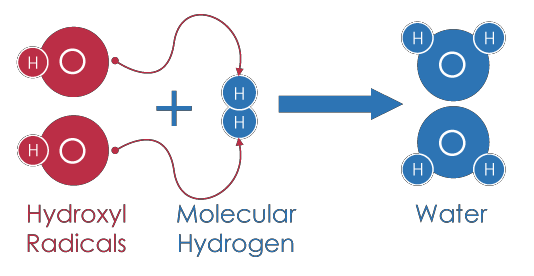
Figure 2

4. Synergy
H2 not only neutralizes hydroxyl radicals directly, it helps enhance your antioxidant enzymes such as glutathione peroxidase, superoxide dismutase, and catalase. Each specific antioxidant enzyme and molecular hydrogen itself take care of different types of free radicals. All of these antioxidants work together to ensure there are no excess free radicals that can cause oxidative stress damage inside your cells.
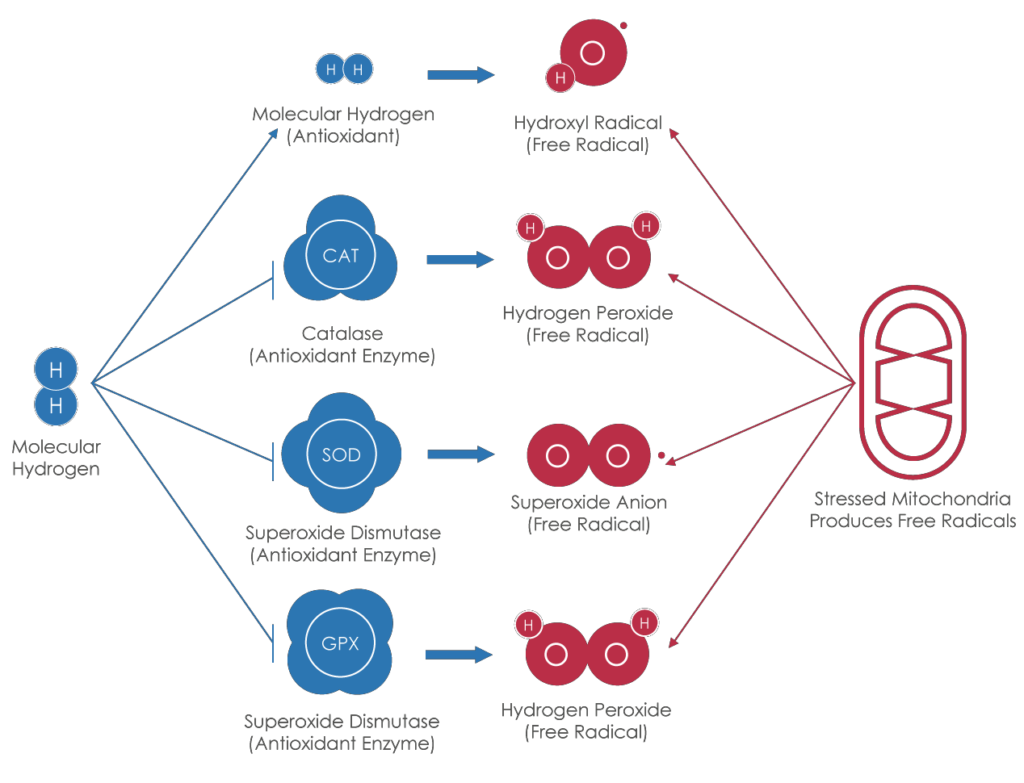
As shown in the figure above, H2 is able to support your antioxidant enzymes and directly eliminate the most dangerous hydroxyl radicals. H2 offers full protection against free radicals without disrupting the balance of free radicals and antioxidants inside your cells.
Molecular Hydrogen is clearly superior to all other antioxidants due to these four reasons. There are a couple ways to incorporate Molecular Hydrogen into your life which we will discuss in the next section.
Ways to get Molecular Hydrogen into Your Cells
Currently there are four main methods of H2 intake that are currently being used around the world. Two of the methods are in hospital or clinical settings and the remaining two methods are more practical and common.
1. H2 Supplements
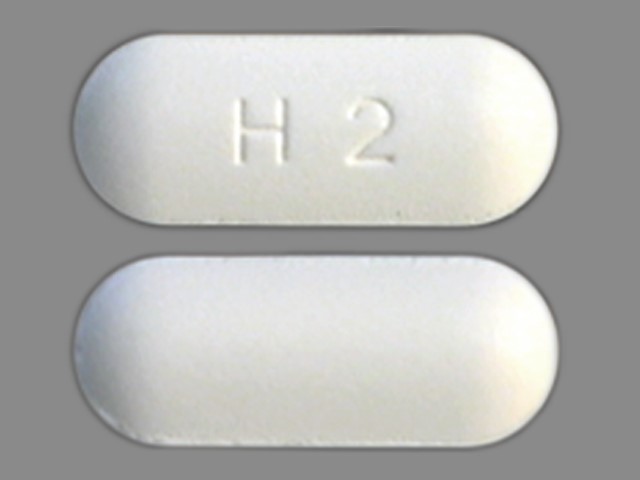
H2 supplements are the easiest method to get H2 into your body on a daily basis. Just pop a few capsules or tablets and high concentrations of H2 will be produced inside your stomach in a few minutes. There are a few H2 dietary supplement products currently available on the market.
2. H2 Saline Injection
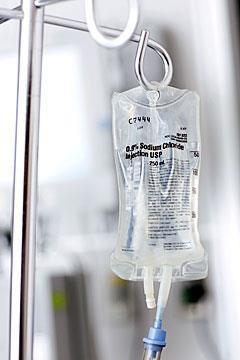
Another method of H2 intake used in hospital settings is the H2 saline injection. A bag of saline (salt water) is infused with H2 gas which is then injected directly into the blood stream of patients. This method is the most accurate way to measure the amount of hydrogen that is administered to a patient.
This method is popular in Japan where H2 industry is the most advanced. H2 is widely recognized as a therapeutic molecule and many products and services are based around H2. However, this method is only viable in clinical settings. In the United States, this won’t be available in the near future due to restrictions set by the FDA.
3. H2 Inhalation
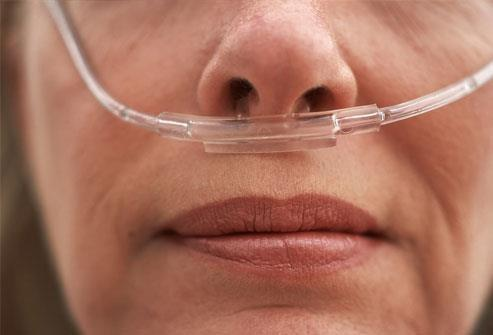
H2 can be inhaled by hooking up a facemask or nasal cannula to a H2 gas generator device. Inhaled H2 gas acts more rapidly than other methods of intake so it’s a suitable defence against acute (sudden) oxidative stress. (I.E. stroke, athletes, inflammation.)
H2 gas inhalation has been used in hospital settings under the care of a healthcare practitioner in Asia. Although H2 gas inhalation seems to have great benefits, it’s impractical for everyday use.
4. H2 Water
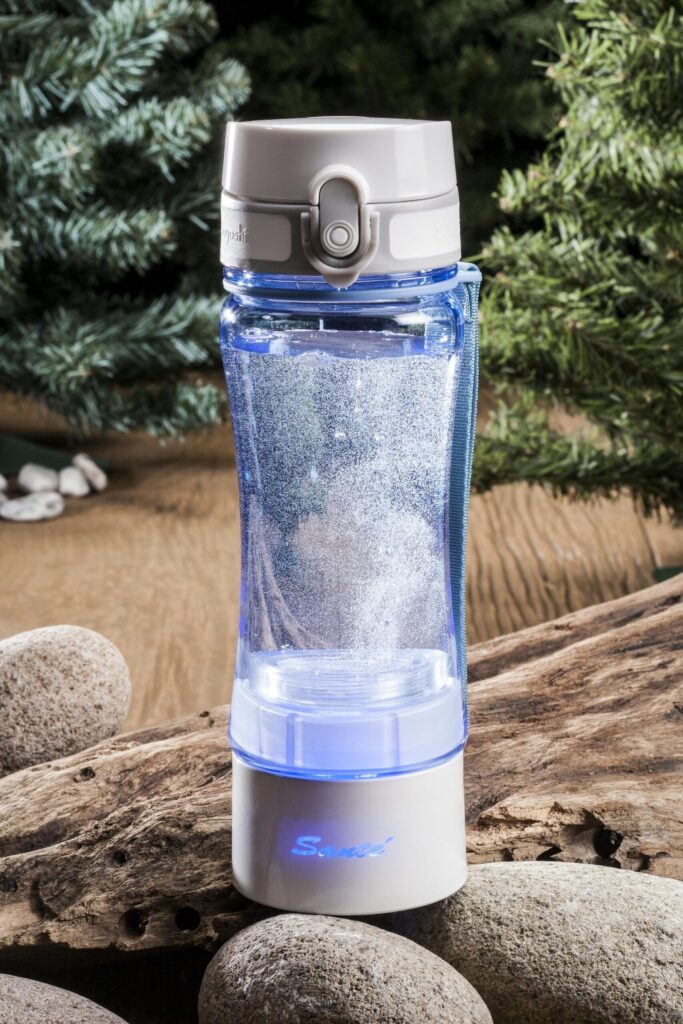
The most common method of consuming H2 is drinking H2 enriched water, simply called Hydrogen Water. Alkaline ionizer machines were the first sources of hydrogen water (although at a very low concentrations).
Recently there are more hydrogen specific water machines being released all over the world. There are also Ready To Drink Hydrogen Water in aluminium packages.
Although very practical, there are two drawbacks to hydrogen water for everyday use.
1. Since H2 gas escapes water readily, you need to drink the water quickly after it’s produced to get the maximum amount of H2. Hydrogen water contained in a glass or plastic bottle will lose H2 very rapidly. Aluminium containers keep H2 in water for a longer period of time.
2. Most hydrogen water generator devices can be pricey, ranging from $1,000.00 to $3,500.00+. When researching Hydrogen Water Devices, make sure that you are getting a product that produces at least 0.50ppm of H2 in the water consistently since that’s been the minimum concentration that showed signs of health benefits. Currently, the best devices generate water that has up to 1.20ppm of H2.
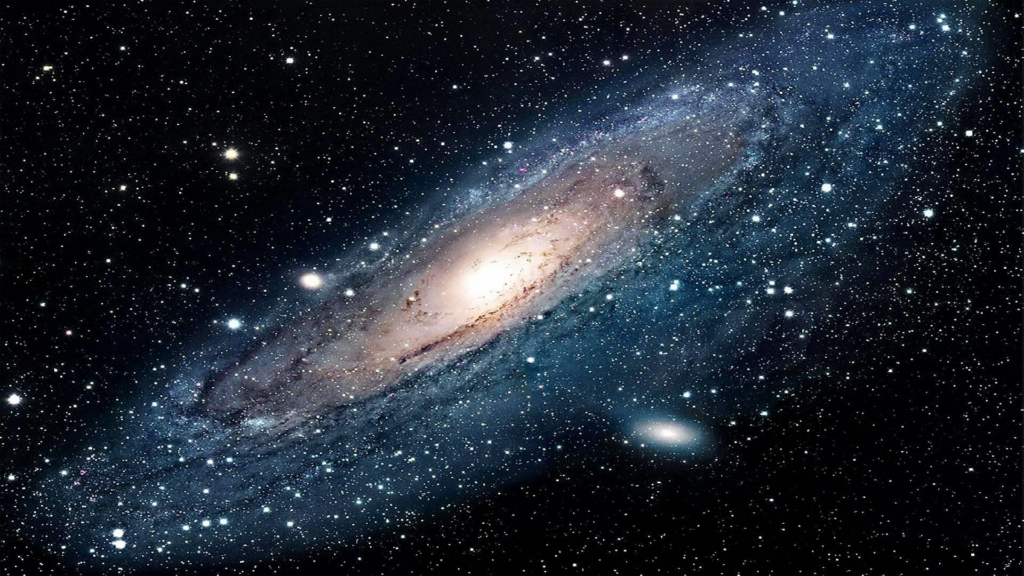
SHARE THE KNOWLEDGE ABOUT MOLECULAR HYDROGEN
We hope that through Our Antio Systems Page, You gained a better understanding of how H2 works inside your cells to provide a plethora of health benefits. It’s been 5 years since we began educating people about Molecular Hydrogen and its versatility, and it’s amazing to see how people are finally starting to catch on.
There are many organizations and researchers out there that are delving into the mysteries of Molecular Hydrogen. There’s so much more to learn and research so that we can fully understand an utilize the benefits of H2. We hope that you can become one of us. Constantly learning about and teaching H2 so that more people can take advantage of this amazing molecule.
Thanks for reading!
Antio Systems
